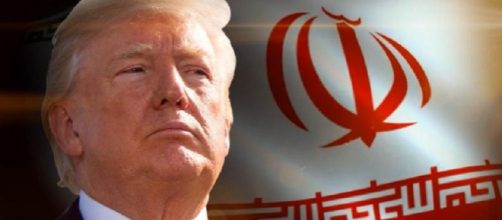US President Donald Trump suggested recently that he would be withdrawing the United States’ involvement from JCPOA, a nuclear arms deal that Barack Obama signed with Iran, which was seen at the time as a landslide moment in the peace negotiations between the two nations, and now, he has reached the ultimatum that he set for his decision. He has decided that America will be pulling out of the Iran deal, and it has the geopolitical community up in arms.
When the President first suggested that he might be pulling out of the deal, the Iranian foreign minister announced that if he did, then Iran would pull out too.
No ifs, ands, or buts. That would be it. They’re out. And now that it’s official, that’s exactly what will happen. There are many problems with Iran at the moment, but thanks to the JCPOA, their nuclear arms program was not one of them. Now that Trump has pulled out of the deal, Iran will pull out of the deal, they’ll reopen their nuclear program, and then there’ll be that one added on top of all the other problems (again).
Experts weigh in: ‘This is a dangerous, destabilising decision’
I had the pleasure to interview Professor Scott Lucas, PhD from the Department of Political Science and International Studies at the University of Birmingham to ask for a comment about Trump’s Iran decision. He said, “This is a dangerous, destabilising decision – primarily motivated by one man’s hatred for his predecessor [Barack Obama, who first signed the deal during his Presidency] and by the desire of his advisors to break Iran economically.” Trump does have a tendency to be swayed by the Republican voices in his ear, who try to use him as a puppet to push their own agendas through.
“The nuclear deal was not an end in itself, but a pawn in a bigger chess game in the Middle East,” Lucas continued. “By taking Iran’s nuclear program off the table, there was a chance of dealing with the regional issues.” So, Obama set the stage for further negotiations about other issues by making nuclear arms and nuclear-related tensions a non-issue with the signing of the JCPOA deal. Lucas explained, “Now, that is gone. With the pawn back on the board, the chances of confrontation escalate sharply – and the US risks being isolated, perhaps alone with Israel, in that confrontation.”
This is not to say that Iran is perfect. There are issues with Iran that need to be dealt with – but Trump’s way is not the way to go about it.
“I have serious issues with Iran’s own policy,” Lucas said, “such as its alliance with the Assad regime’s devastation in Syria. But ripping up the nuclear deal offers nothing to deal with this.” With his decision to pull America from the deal, which he believes is “one-sided” in Iran’s favour, Trump has not faced any of the bigger issues head-on and everything that was a problem before remains a problem – except now with the added issue that Iran’s nuclear program is back on the table.
Trump is challenging his allies in Europe
There are a lot of European countries who are involved in this Iran deal, and a lot of them are also allies of America, so by cutting out of this deal – even with the knowledge that if he did, Iran would be cutting and running as well – Trump is seriously challenging some of his closest international allies, including the UK and France, whose leaders he’s awfully friendly with – well, they share a love/hate relationship with him at best, when he’s not giving them an unusual handshake or criticising their handling of terrorism.
Trump did not have any kind words to say about this deal in his announcement of the US pulling out of it. He the deal “decaying and rotten,” and said that “as a citizen” of the United States of America, the deal was “an embarrassment” to him. Iranian President Hassan Rouhani has said that this shows that America “doesn’t respect its commitments,” and that because of this, Iran’s Atomic Energy Organisation has been ordered to go back to business as usual.

